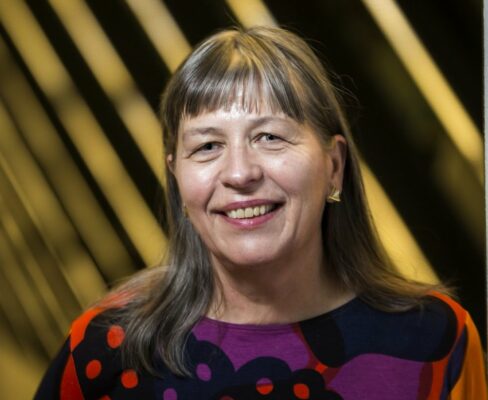Þóra Ellen is professor of Botany at the Department of Life and Environmental Sciences at the University of Iceland. She has a Ph.D. in botany from the University College of North Wales, Bangor. Her research centres on plant ecology, most recently on ecosystem development on young terrain and the age and characteristics of the Icelandic flora. She has also written on conservation, especially in the central highland, and on Icelandic landscapes. Along with Hörður Kristinsson and Jón Baldur Hlíðberg, Þóra Ellen received the President‘s literary award for 2018 for their book on the Flora of Iceland. Þóra Ellen has been chairperson of the Institute of Life and Environmental Sciences and of the board of the Institute of Natural History. She has been active in nature conservation, sat on the Nature Conservation Council, and was co-author of the white book for the revised Nature Conservation Act (2013). Þóra Ellen was on the board of the Master Plan for Energy and Conservation from 1999-2021.
Plenary talk title: Abrupt ecosystem shifts: Thresholds, processes and timescales.Lessons for 21st century changes
Abstract: Most documented cases of ecological regime shifts involve a transformation to a less productive and often less desirable state. Iceland has many examples, attributable to volcanism, anthropogenic causes and the Little Ice Age. Now, warming climate, sometimes in conjunction with altered land use, is initiating change, some of which may eventually create ecosystems resembling the pre-landnám state.
Skeiðarársandur outwash plain may be an example of a double state shift. From medieval documents, we have recreated its settlement-time ecosystems. By 1900 Skeiðarársandur was a barren desert but signs of recovery were apparent by the late 20thc. Our efforts have been directed at understanding the thresholds, trajectories and population dynamics of these young ecosystems. The initial successional phases are stochastic and the early communities constituted a neutral assembly from the available species pool with respect to functional traits. The massive establishment of mountain birch on Skeiðarársandur after 1990 demonstrates that once a system has been pushed back over the threshold required for recovery, changes may be extremely rapid.
Anthropogenic influences now dominate the Earth‘s living systems. In Iceland, we have the technology and means to shape future ecosystems. We have the option of facilitating recovery of indigenous ecosystems, acknowledging their biological, landscape and cultural values. However, continued expansion of invasive species will compromise that goal.
